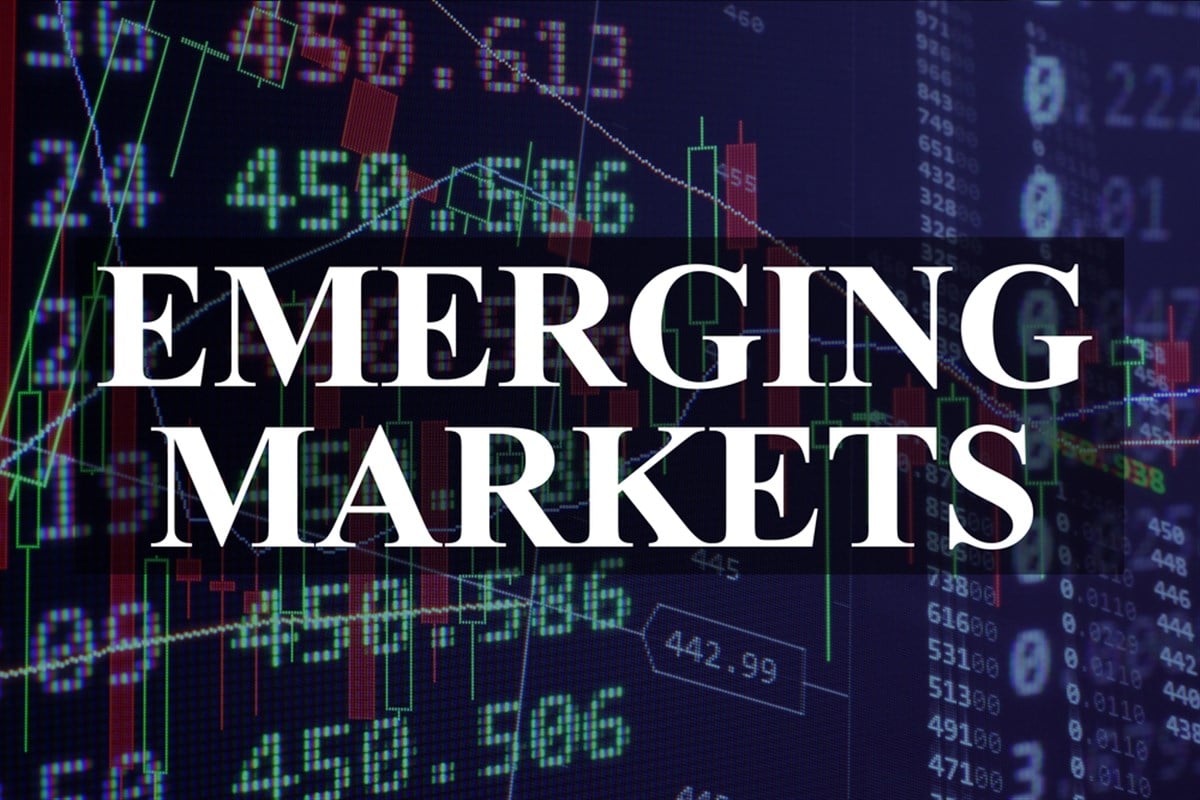3 outperforming alternatives to the VWO emerging markets ETF The emerging markets asset class has a proven ability to generate explosive returns, warranting it an allocation in a long-term investment portfolio.
By MarketBeat Staff •

This story originally appeared on MarketBeat

In the U.S. equity space, it’s the SPDR S&P 500 ETF (commonly known as SPY). In international equities, it’s the Vanguard FTSE Developed Markets Index Fund (VEA). For domestic bonds, it’s the iShares Core U.S. Aggregate Bond ETF (AGG).
Every asset class has its favorite exchange traded funds (ETFs). Based on their enormous amounts of assets under management (AUM), these are the funds that investors flock to the most to gain exposure to broad segments of the capital markets. But does this necessarily make them the best choices?
Yes and no.
When it comes to costs, the low expense ratios of such popular ETFs is a major advantage. Less of the investor’s money goes back into the fund managers pockets. When it comes to performance though, there are usually better options out there — even if it means paying a bit more.
Let’s look at emerging markets equity — a smaller piece of the global capitalization pie, but an important one. For the rest of the decade, developing economies like China, India and Brazil are expected to grow faster than mature economies like the United States. Why? Stimulative government policies are expected to lead to lower unemployment, higher disposable incomes, increased investment and greater consumer spending.
On Tuesday, the International Monetary Fund (IMF) forecast that the global economy will expand 3.1% in 2024. Emerging markets are forecast to grow 4.1%. While the asset class has lagged U.S. stocks in recent years, its proven ability to generate explosive returns warrants it an allocation in a long-term investment portfolio. Emerging market stocks were by far the best performing group in 2005, 2007, 2009, and 2017, with returns ranging from 34% to 79%. Given their relatively low valuations, they may be overdue for another win.
With approximately $75 billion in AUM each, the most popular emerging market equity ETFs are the Vanguard FTSE Emerging Markets Index Fund (VWO) and the iShares Core MSCI Emerging Markets ETF (IEMG). Both are cheap but both have also produced underwhelming risk-adjusted returns — even relative to emerging markets. Over the past 12 months, VWO and IEMG are down 2.1% and 1.4%, respectively.
Then there are a bunch of lesser-known ETFs that put a different spin on emerging markets investing. Some are less concentrated in China, a recent source of underperformance. Others enhance returns by focusing on dividends, fundamental quality, liquidity or smaller companies. Here are a few that are hitting it out of the park.
#1 - EMXC
The iShares MSCI Emerging Markets ex China ETF (NASDAQ: EMXC) is up 8.9% over the past year. Simply by excluding Chinese equities, the fund has doubled up the return of VWO. Avoiding China has been a winning move over the last few years because of the country’s slow pandemic recovery, property crisis and failed government efforts to spur private investment.
By investing in EMXC, investors run the risk that the world’s second largest economy rights the ship and generates the outsized returns it has long promised. But it also reduces volatility with Chinese equities among the most risky, headline-sensitive investments around. Absent China, the low-cost fund contains roughly 700 stocks. Information technology becomes the largest sector weight (instead of financials) and India, Taiwan and South Korea have the largest country representation
#2 - EDIV
The SPDR S&P Emerging Markets Dividend ETF (NYSEARCA: EDIV) has a staggering 1-year return of 31.5%. This is not only the best among emerging markets ETFs but well ahead of the SPY’s 1-year return of 24.4%. The EDIV portfolio is limited to the 100 emerging market stocks with the highest risk-adjusted dividend yields that pass additional filters for profitability and dividend growth. Stocks are weighted according to their trailing dividend yield and there are weight limits at the country (25%) and individual stock (3%) levels. The result is a highly investable emerging market fund with a 4.3% dividend yield and a P/E ratio of just 9x.
#3 - EEMS
The iShares MSCI Emerging Markets Small-Cap ETF (NYSEARCA: EEMS) is up 14.6% over the last 12 months. It invests exclusively in smaller, publicly traded companies that are located in emerging countries. While this inherently comes with more risk compared to established companies, lately it’s been a risk worth taking. The ETF boasts a 7.7% five-year return versus 2.6% for the broader emerging markets index. EEMS contains nearly 1,600 stocks across all 11 sectors with technology and industrials the most prominent. It could serve as a compliment to a large cap-oriented emerging markets ETF — or for China-weary investors, a good way to limit China exposure. China accounts for just 6.5% of the fund while booming India equities have the biggest weighting.










